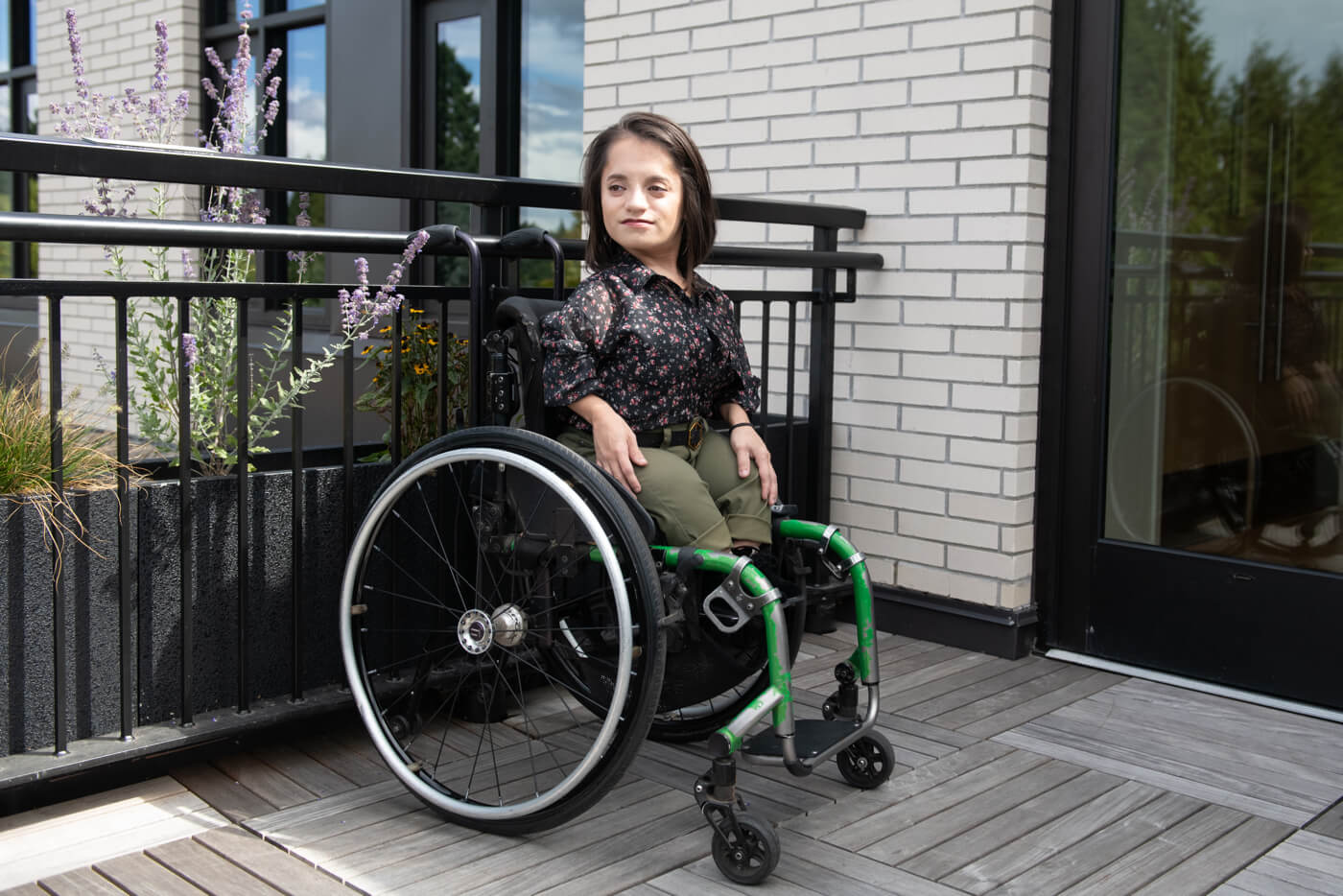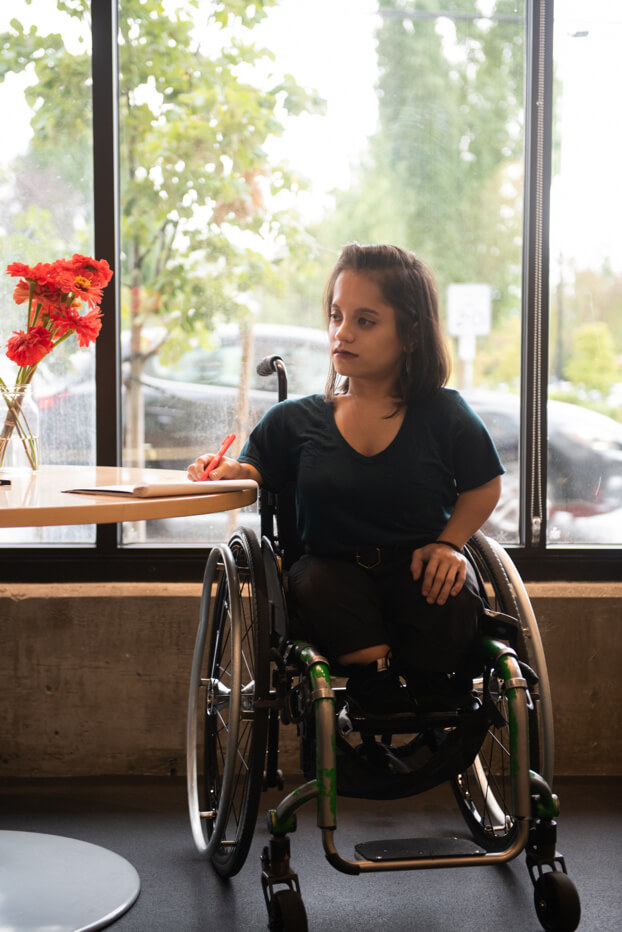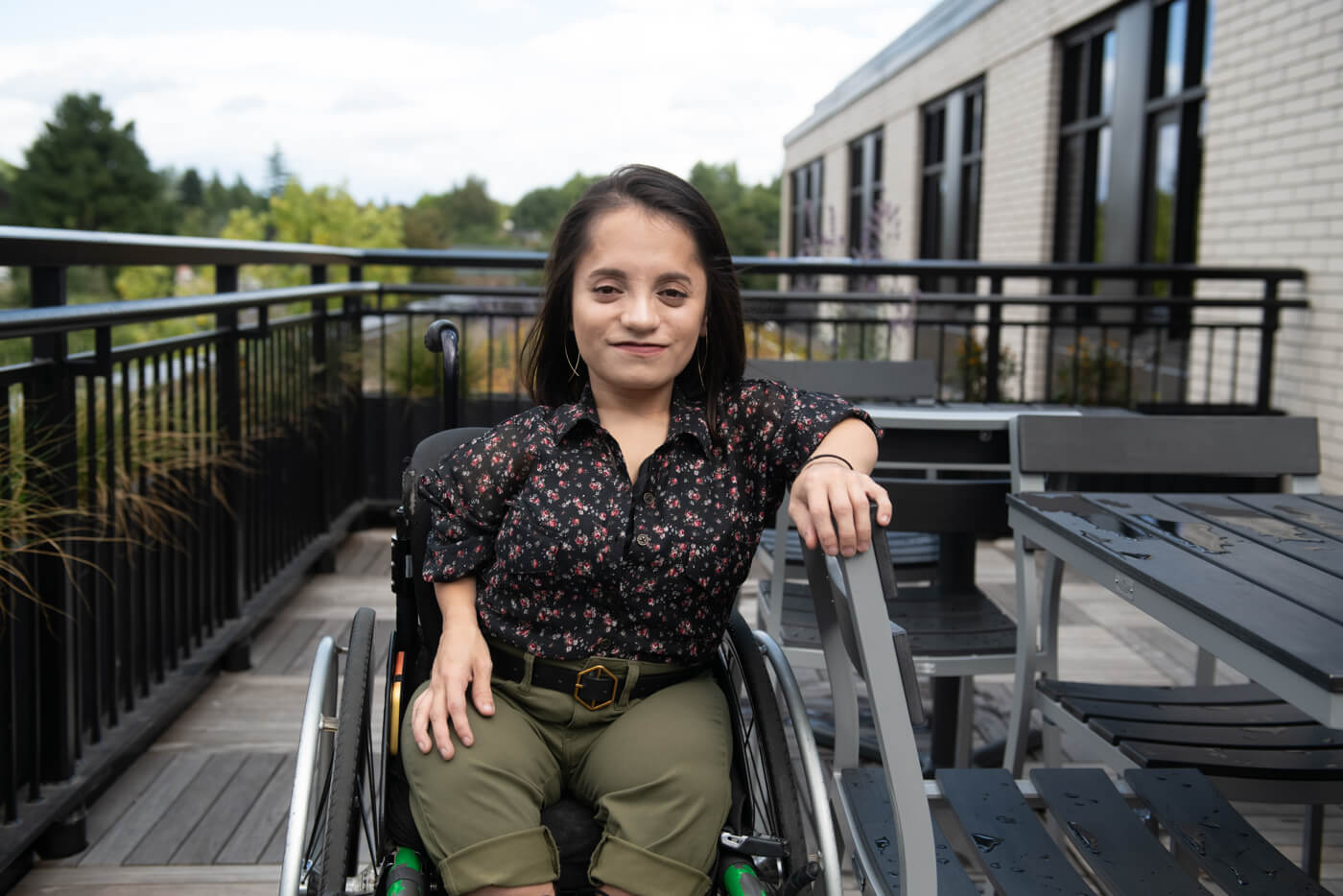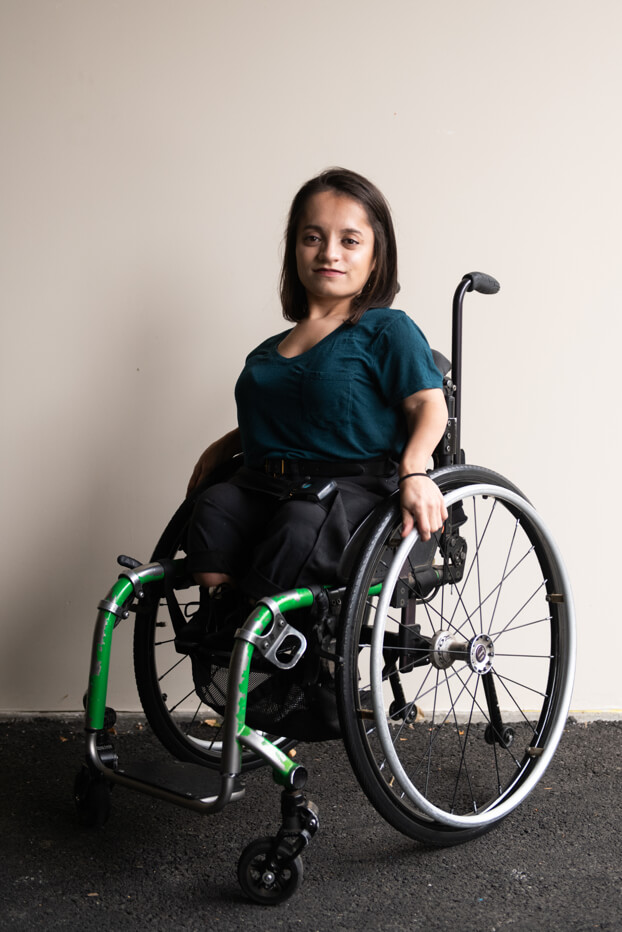October 24, 2019
Disabled And Here: Interview with Sophia Vicencio
Hi Sophia! How would you like to introduce yourself? I am a recent University of Oregon graduate with a BA in Ethnic Studies. I work in retail at the moment, but my passion lies in social justice and racial equity for disabled people of color and intersecting marginalized communities. My pronouns are she/her.

Congratulations on getting your Bachelor’s! Academia is not exactly known for its accessibility – can you speak a little on what your experience as a student was like? Thank you!! As a wheelchair user, I had some challenges getting around campus and accessing some of the older buildings. In one of the buildings for example, there wasn’t even an elevator to the second floor. I also remember being frustrated with a particular building because I was repeatedly assigned to that location. To elaborate, this building was “accessible” on paper because of the ramp into the main entrance and the singular working elevator. But it still didn’t feel like I was meant to be there, despite having so many classes that aligned with my interests or my major at that location. That was an interesting contradiction for me, but it was also only one of the barriers.
On a related note, Deady Hall – one of the oldest classroom buildings at the University of Oregon – is only marginally accessible to me as a wheelchair user. Accessibility is only one of the factors that make Deady Hall problematic, as this building is still named after someone affiliated with the KKK. In 2015, a number of Black students advocated for renaming Deady Hall, but this request was denied two years later. A space that does not explicitly welcome Black, Indigenous, People of Color (or disabled BIPOC) is not an accessible space for all. The University of Oregon needs to continue making strides to honor and include BIPOC, not maintain oppressive structures. Ideally, renaming Deady Hall would be another way for President Schill to continue this important process of reimagining the inclusion of marginalized people at the University of Oregon.
Is there anything you’d like to do now that you’re out of school? I have a lot of long-term goals right now, and all of them have to do with getting more independence. In the next few months, I hope to find a job outside of retail that I can support myself with. But somewhere in there, I am also searching for community that prioritizes and centers QTPOC.

How long have you been in Portland / the Pacific Northwest? How does it compare to other places you’ve lived? I have been in Portland for six years now. I am from the Chicago suburbs, and it was a lot different for me at first. Overall, people are nicer here. I’m always grateful for the scenery and fresh air, and for the privileges that I get from living in a climate that doesn’t typically get a vicious winter.
Have there been any disability-led projects or hashtags that have resonated with you over the past year? Imani Barbarin on Twitter has knocked the disability hashtags out of the park this year: #TheCostofBeingDisabled, #DisabledCompliments, #AbledsAreWeird, #HealthcareWhileColored, and #ADAInColor are some of my favorites from her.
Also Annie Elainey [Segarra] started #QueerAndDisabled, which I think is great.
Is there anything you wish people understood better about disability or accessibility? I love this quote by Gabrielle Peters: “Accessibility is not the thing I want to study or work on. It’s not the thing I get excited about talking about. It’s not even an end goal. It’s a necessary condition for me to live. It’s a [precondition] for justice. I have dreams too. I have goals beyond bathrooms […] If you tell me I am inspiring I am going to ask why and you better have a good reason.”
But in my own words, I want people to know that disability advocacy is not the only issue that I have something to say about, or have any kind of political stake in. I want people to measure disabled people’s productivity not just by how often we are advocating for our own access needs, but by how we’re able to live out our own goals and accomplishments either outside of or along with disability advocacy work. Advocating for my own access needs is more of a subconscious process for me, and it only taps the surface of what I care about and what I’m capable of.

Speaking of which, what are some causes or things you care about that aren’t necessarily disability-related? I am aiming to work in a nonprofit organization that matters to me. I am most interested in being of service to a community that needs me, and I am open to redefining what that looks like for me in the future.
On that note, something I really care about right now is the praxis of an ally. What I mean by that is I am looking beyond performative acts of service that come from allies. More specifically, how a privileged person should participate and be active in their community, without overpowering the people who are and should be centered in that. When I’m doing that work, I am hoping to demonstrate to my non-disabled allies what it means to be in camaraderie with me as a disabled person. In a way, it’s all connected, but I also have to use a different lens outside of my disability to do that work.
And what do you do just for fun or relaxation? To relax, I watch Netflix. For fun, I like meeting new people and going out with friends.
Is there anything you’d like to wrap up with? If you’re white and disabled/neurodivergent and you’re reading this, please go out of your way to find disabled voices of color and start to concern yourselves with racial justice in the disability community. Alice Wong, Vilissa Thompson, Talila Lewis, Mia Mingus, Lydia X. Z. Brown, and Kay Ulanday Barrett are people who you can follow on social media or you can Google their work (and compensate them if you are able to).
Going forward, what are some ways that people can follow and/or support you? Here are a number of causes you can donate to on my behalf (in no particular order):
- RAICES: legal services for underserved immigrant families
- The Okra Project
- RAINN

She is in front of a white wall.
On a more personal note, if your nonprofit is centered in racial equity and justice, I'd love to work together and can offer practical support to a number of marginalized communities in Oregon. You can contact me at sophia.vicencio@yahoo.com.
Thank you for your support!!
This interview has been edited for clarity and length.